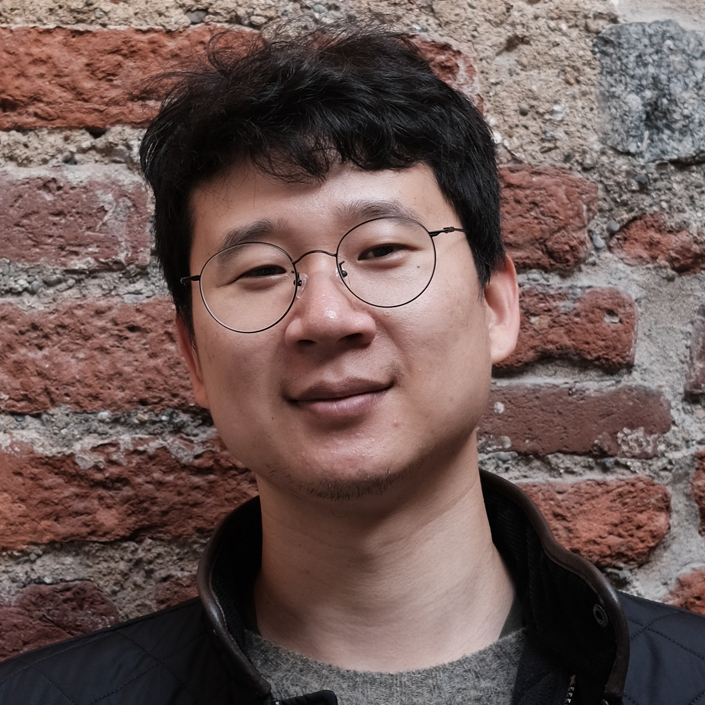Overview
The rapid advancement of AI tools for image analysis, including Generative AI, promises to bring medical imaging research to a new level. This mini-symposium brings together scientists who use medical image data to address significant questions and scientists who develop cutting-edge AI tools.
The morning session is open to the public.
The afternoon session is an intensive roundtable discussion for U-M faculty members who plan to address significant research questions with medical image analysis, and AI experts who are interested in introducing cutting-edge image analysis methods in an important application domain. With guided discussions, roundtable attendees will share their research interests, opportunities they are seeking, and work together to refine research ideas and develop collaboration.
*Please note that photography will be in use during this event. If you do not wish to have your photo published, please pick up a red lanyard during check-in.
Program at a Glance

Dr. H. V. Jagadish, Edgar F Codd Distinguished University Professor of Electrical Engineering and Computer Science, Bernard A Galler Collegiate Professor of Electrical Engineering and Computer Science, Professor of Electrical Engineering and Computer Science, College of Engineering; Director of the Michigan Institute for Data and AI in Society, University of Michigan

Dr. Jing Liu, Executive Director, Michigan Institute for Data and AI in Society, University of Michigan

Dr. Liyue Shen, Assistant Professor Electrical and Computer Engineering, College of Engineering, University of Michigan
Liyue Shen is an assistant professor in the ECE Division of the Electrical Engineering and Computer Science department of the College of Engineering, University of Michigan – Ann Arbor. She is also affiliated with the Michigan Institute for Data and AI in Society (MIDAS).
She received her B.E. degree in Electronic Engineering from Tsinghua University in 2016, and obtained her Ph.D. degree from the Department of Electrical Engineering, Stanford University in 2022, co-advised by Prof. John Pauly and Prof. Lei Xing. She was a postdoctoral research fellow at the Department of Biomedical Informatics, Harvard Medical School from 2022 to 2023. She is the recipient of Stanford Bio-X Bowes Graduate Student Fellowship (2019-2022), and was selected as the Rising Star in EECS by MIT and the Rising Star in Data Science by The University of Chicago in 2021.
Her research interest is in Biomedical AI, which lies in the interdisciplinary areas of machine learning, computer vision, signal and image processing, medical image analysis, biomedical imaging, and data science. She is particularly interested in developing efficient and reliable AI/ML-driven computational methods for biomedical imaging and informatics to tackle real-world biomedicine and healthcare problems, including but not limited to, personalized cancer treatment, and precision medicine.

Dr. Jeong Joon Park, Assistant Professor of Computer Science and Engineering, College of Engineering, University of Michigan
Jeong Joon (JJ) Park’s research interests lie in the intersection of computer vision and graphics, where he studies realistic reconstruction and generation of 3D scenes using neural and physical representations. Generations of large-scale, dynamic, and interactive 3D scenes are his current primary targets. His group will explore 3D vision and graphics, and their applications to robotics, medical imaging, and scientific problems. He is the lead author of DeepSDF, which introduced neural implicit representation and made a profound impact on 3D computer vision. Before coming to Michigan, he was a postdoctoral researcher at Stanford University and a Ph.D. student at U of Washington, supported by Apple AI/ML Fellowship.

Dr. Ryan Stidham, Associate Professor of Gastroenterology and Hepatology, Medical School, University of Michigan
Dr. Stidham’s research focuses of improving the ways that we monitor Crohn’s disease and ulcerative colitis. Knowledge of disease activity can help determine if current medicines are sufficient, if a change in therapy is needed, or if we can reduce therapy. Knowing disease activity may also be able to predict a flare of disease prior to developing symptoms. Finally, we seek developing new markers of disease activity that are minimally invasive, low cost, and can be performed in a doctor’s office.

Dr. Lubomir Hadjiyski, Professor of Radiology, Medical School, University of Michigan
Dr. Hadjiyski research interests include computer-aided diagnosis, artificial intelligence (AI), machine learning, predictive models, image processing and analysis, medical imaging, and control systems. His current research involves design of decision support systems for detection and diagnosis of cancer in different organs and quantitative analysis of integrated multimodality radiomics, histopathology and molecular biomarkers for treatment response monitoring using AI and machine learning techniques. He also studies the effect of the decision support systems on the physicians’ clinical performance.

Dr. Stella Yu, Professor, Computer Science and Engineering, College of Engineering, University of Michigan
My research lies at the intersection of computer vision, human vision, and machine learning. Visual perception presents not just a fascinating computational problem, but more importantly an intelligent solution for large-scale data mining and pattern recognition applications.
Human vision is a universal sensing system like no other: It is a flexible light meter, an instant geometer, a versatile material comparator, and a holistic parser. What fascinates me most is that babies with normal vision eventually all learn to see out of an initial nebulous blur and from their wide range of different visual experiences; such rich integrated sensing and recognition is so well developed that seeing becomes believing and visual reality the reality.

Dr. Gary Luker, Professor of Radiology, Professor of Microbiology and Immunology, and Professor of Biomedical Engineering; Associate Chair of Radiology Clinical Research, University of Michigan
Gary Luker is a physician-scientist with research interests centered at intersections of cancer biology and molecular imaging. The Luker Lab investigates tumor-stromal interactions in cancer that drive tumor growth, metastasis, and drug resistance. The lab applies multi-scale imaging methods to understand tumor heterogeneity and predict early responses to therapy in models ranging from single cells to clinical studies. He serves as the Editor of the RSNA journal, Radiology: Imaging Cancer.
- significant research opportunities;
- conceptual and technical challenges
- developing project ideas and collaboration
- Goal: starting the planning of concrete projects / grant proposals
Organizer

Jing Liu
Executive Director
Michigan Institute for Data and AI in Society
Questions?
Message the MIDAS team: [email protected].
